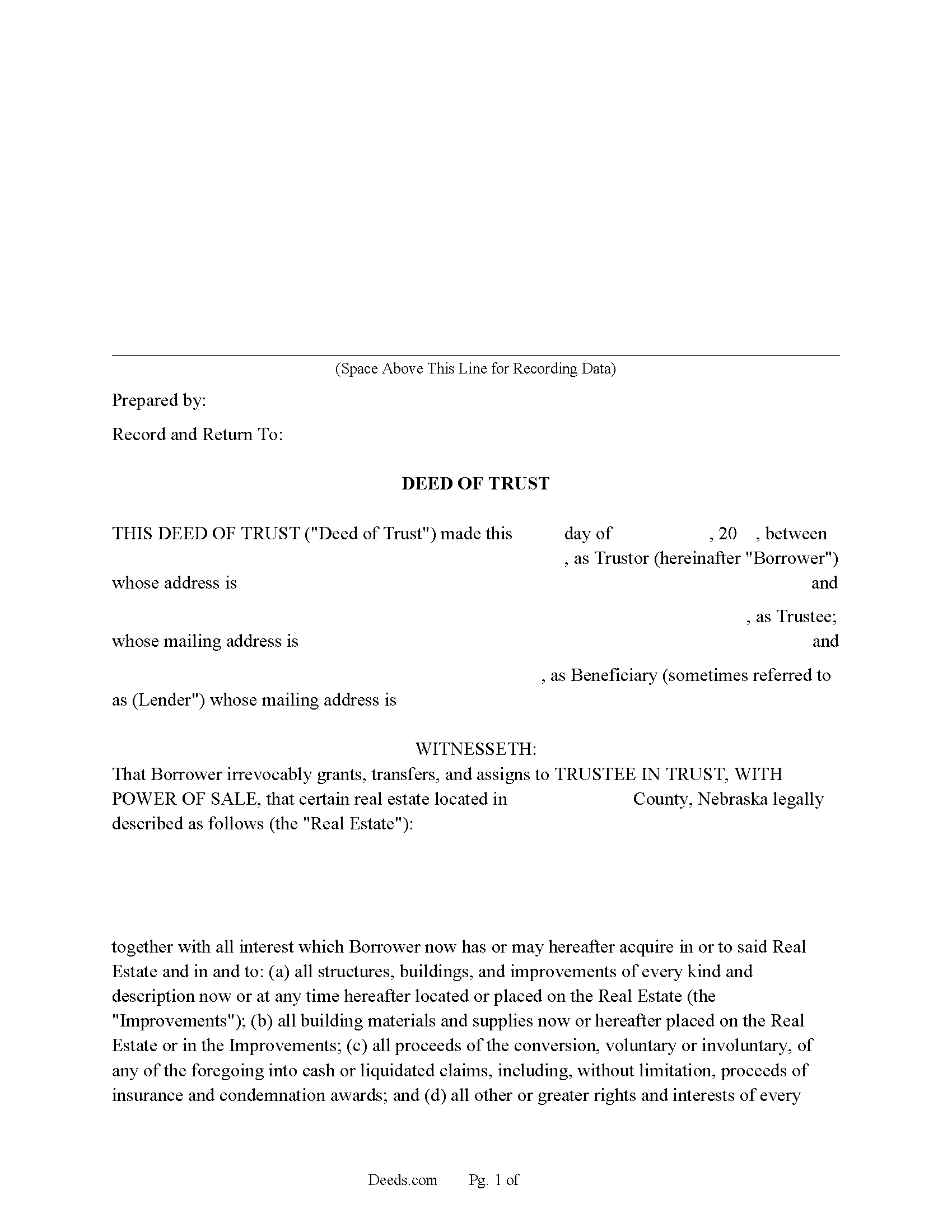Download Nebraska Deed of Trust Legal Forms

Nebraska Deed of Trust Overview

In Nebraska, a Deed of Trust is the most commonly used instrument to secure a loan. Foreclosure can be done non-judicially, saving time and expense. This process is called a Trustee Sale. There is no automatic stay of a trustee's sale under the Nebraska Trust Deeds Act, whereas in a typical judicial foreclosure a borrower would be entitled to a stay of the sheriff's sale for anywhere from three to nine months depending upon the maturity date of the real estate mortgage
There are three parties in this Deed of Trust:
1- The Trustor (Borrower)
2- Beneficiary (Lender) and a
3- Trustee (Neutral Third Party)
76-1003. Trustee; qualification.
(1) The trustee of a trust deed shall be:
(a) A member of the Nebraska State Bar Association or a licensed real estate broker of Nebraska;
(b) Any bank, building and loan association, savings and loan association, or credit union authorized to do business in Nebraska under the laws of Nebraska or the United States or an agency of the United States Department of Agriculture involved in lending;
(c) Any corporation authorized to conduct a trust business in Nebraska under the laws of Nebraska or the United States; or
(d) Any title insurer authorized to do business in Nebraska under the laws of Nebraska.
(2) The trustee of a trust deed shall not be the beneficiary named in the trust deed unless the beneficiary is qualified to be a trustee under subdivision (1)(b) or (c) of this section.
Basic Concept. The Trustor (Borrower) conveys property title to a Trustee (Neutral Party). A Trustee or beneficiary can take an action against any person for damages. Use this Deed of Trust for financing vacant land, residential property, small commercial property, rental property (up to 4 units), condominiums and planned unit developments.
(Nebraska DOT Package includes forms, guidelines, and completed examples) For use in Nebraska only.